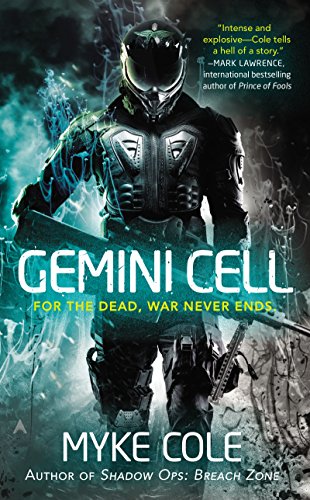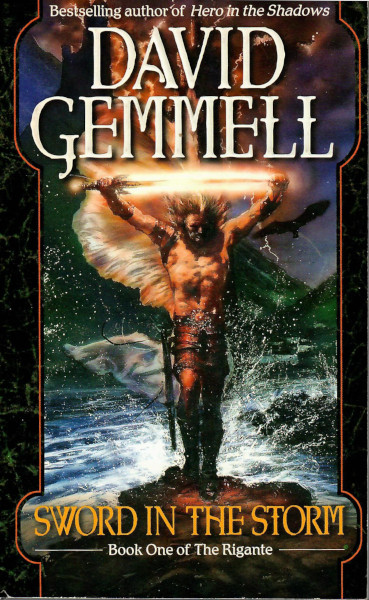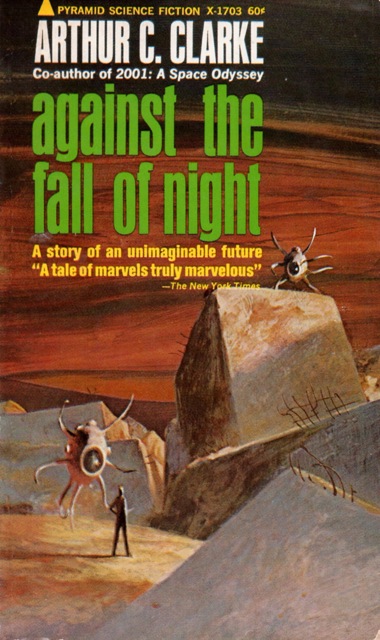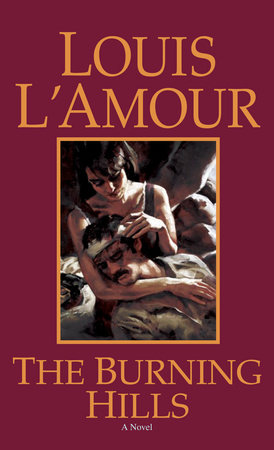Time to wrap things up with some writing reviews! I wasn't sure how many I'd have for this article, as I ended up writing quite a few for the first part, but I was able to wrap up quite a few novels before the end of the year, so maybe they're completely unbalanced. In any case, I've been reading some pretty fascinating books, even if they are just more genre fiction (I know what I like, okay?). Here we go!
Sword in the Storm (1999)
by David Gemmell
Despite all the Conan I had been reading this year, I decided to pick up the first of this series as well. I think I just wanted a fantasy that had more a modern writing style, away from the purple prose of pulp fiction. And besides, Gemmell is an author I've been eager to read more of, anyway, ever since I read Legend many years ago.
The Rigante is the name of a people who live up in the mountains of this fictional world, which draw pretty heavily on Celtic themes, culture, and mythology, as well as other Iron Age trappings. While the story does drift between a handful of characters, the main one is Connovar, a kind of chosen one who has been simultaneously cursed and blessed by the Sidhe, a set of mysterious deities that live in the nearby forests. The book then builds this world of low magic and diverse peoples as Connovar explores the lands and learns about the wider world.
I will say that the book takes a while to get going, but it does such a good job with its world-building that I didn't seem to mind. As the chapters spend the time exploring and explaining the culture of the Rigante, you really begin to feel for these people and their trials, both mundane and epic. As for Connovar, he's a curious hero. At times, he seems almost overly simplistic, seeing things in black-and-white quite often, but he remains a clever young man who knows when to strike and when pull back. He ends up travelling with a good friend to learn about other lands, but when those plans go awry, he ends on the armies of the Stone people for a while, hopeful to learn their ways, if only to help defend his homeland against them when they finally come to try and conquer the Rigante as well.
At first, I wasn't sure quite where the story was going, but it just made reading the next chapter all the more compelling. Unfortunately, this book is just the first of a series, and while it has a decent conclusion to some immediate issues, the looming fear of the Stone people is left hanging for the sequels, which I assure you I will be looking for, one way or another. Gemmell does such a great job giving his characters weight without making them overly complex, clearly building on very classic mythological story-telling. For this who like their fantasy to be gritty and manly and old-school, without ignoring grave consequences, then you've probably already heard of David Gemmell, but if you somehow haven't, this is highly recommended.
 Gemini Cell (2015)
Gemini Cell (2015)
by Mike Cole
This is a bit of a weird one. I was expecting a military thriller with some neat extras, and while that turned out to be true, I wasn't expecting it to go this far off the track! While I had never heard of it before, this turns out to be the first in a prequel trilogy related to Shadow Ops series he had written before this one. It has some interesting ideas, but it doesn't explain them sometimes, and ends up a bit sloppy in the end.
Jim Schweitzer is a part of the Navy SEALS and when he goes on yet another mission, he stumbles across a tanker of dead bodies in cryostasis. He is told to dismiss it by his superiors, but when he becomes the target of a conspiracy, he sees not only himself, but his beloved wife and son get shot to smithereens in his home. Expecting to be dead, he awakes to discover he's been revived by another secret organization, using sorcery to implant a djinn into his body, not only to bring him back to life, but to turn him into a super-soldier, with incredible, violent powers. However, the djinn seems to have his own plans, and this new organization seems to be hiding something about the state his wife and son, who are very much alive.
I picked this up on a whim years ago (from a library book sale, naturally), and so when I decided to give it a shot, I was surprised by the decent quality of the writing. While it has a very immediate tone, the author certainly isn't afraid to explore his characters and let them contemplate their circumstances. It does get a bit sluggish here and there, but it's all to build up the forward progression that comes in bits and pieces. However, because the narrative is so focused on the main character and his wife, it makes the world feel a little small, despite the craziness of the scenario. The use of magic is also kind of vague, seeming to fit the needs of the scene and reacting more to emotions rather than rules, making it hard to know how things work. Unfortunately, the story turns out to not be as sophisticated is perhaps it wants us to think it is, and it does get rather out of control, towards the end, only to reach a small amount of closure before making it clear that most of the plot threads will be resolved in the sequels. Still, it confidently goes through its military thriller tropes, using this world of horrific magic-power monsters to spice things up, and I suppose that's enough. I don't know if I'll follow up on this one, but it certainly sets itself apart from either the fantasy or thrillers it's drawing from.
Elantris (2005)by Brandon Sanderson
So, last year, Brandon Sanderson decided to really mess with folks by doing what he does best: writing too many dang novels. When his new Kickstarter program offered a limited run of four novels for 2023, he called it "The Year of Sanderson." While I'm sure the BrandoSandoFandos were excited, I was mostly bemused by the novelty of what he had initiated. Nevertheless, I knew that I would couldn't ignore his stuff forever, so I decided to celebrate his "Year" by reading the one book of his I have: Elantris. While I knew going in that it was his first novel, I didn't expect something quite so dense!
Elantris was once a great city, a place of immortals with incredible powers, where the impossible seemed possible. However, when that immortality turned into quite the terrible plague, the city was abandoned to the zombie-like sufferers, leaving the rest of the lands in a state of decay, ripe for change. The book focuses on three characters, shifting from their various points of view to tell it's story. It starts with Raoden, a prince of the nearby kingdom of Arelon suddenly contracting the damning disease and being sent to Elantris to live with the condemned. Second is Serene, the princess of Teod, who learns upon arrival that her betrothed Raoden has suddenly died. Because she is required to stay in Arelon, she decides to explore the politics of her new land, quickly running into the third character, Hrathen. The immediate villain, Hrathen represents the goals of the Derethi religion in their efforts to expand their territory under the guidance of a prophecy regarding Arelon's impending doom if they don't convert, and Hrathen is willing to resort to whatever means necessary in order to succeed.
Right off, this is a very dense book, not only in trying to understand the immediate history and turmoil of the setting, but also in providing a rather large swath of characters to go with the three main stories, each of which could have been a novel on their own. Weaving all three of these together gets pretty overwhelming pretty quickly. It also took me a while to realize that this wasn't a grand fantasy adventure, but a kind of magical mystery with a heavy dose of political intrigue to complicate things. However, it doesn't rush things either, taking its time to explain and explore the various complexities of the book's setting and circumstances, making for quite the probing epic.
Unfortunately, this does make the book feel very slow. I understand that, with a new fantasy setting, you don't want to overwhelm your readers too much by dumping everything up front, but at the same time, I think a good third of this book could have been edited out, as the beginning parts really dragged on. Once it finally did start building its momentum, it became an enjoyable read, and resolved most of its ideas pretty well. The main three characters are well realized and enjoyable, in their own way, and the world did eventually feel like its own at the end. While I don't plan on picking up any other Sanderson novels soon, I at least can say that I've dipped my toes in the waters, with a good idea of what to expect, should I decide to return.
After the Fall of Night (1953)
by Arthur C. Clarke
I figured I should try and squeeze in some science fiction between all this fantasy and remembered that I had this little novel in my collection. Despite having not really read much of this acclaimed author, I am certainly familiar with the movies that were made for both 2001 and 2010 Space Odysseys. So I figured I was in for some big-idea sci-fi tale, and the premise of this novel certainly wanders into those realms, among other places.
Millions of years into the future, all of humanity had made a last ditch effort to exist by coming together into a single city called Diaspar. There, people live in a blissful cocoon, living in immortality and pleasure for eternity. However, among them is Alvin, a young man who cannot understand his people's desire to stay in the city. His curiosity is at first shut down by his mentor, but then he gets a curious clue that leads him to meet with the Keeper of the Records, Rorden. Together, they are able to piece together the truth about their world and history, leading Alvin to go beyond Diaspar's walls and even further.
While the story seems like an excellent set up for exploring the questions that come from contrasting decadence and safety vs. curiosity and vitality, it's a shame that the book doesn't really bother with that. Instead, we get more of an adventure tale for Alvin as he discovers more and more about the mysteries of the past, charging off to horizons and frontiers untouched by man for millions of years. While it's generally thrilling in the moment, it's hard to feel like much of it matters as Alvin bolts off to the next thing. Overall, it ends up being a curious blend of big sci-fi ideas that never get to settle. Even the ending seems to be more about what will happen rather than what has happened, but I suppose there's only so much you can do with such a short novel.
Looking into the details, while Clarke had been writing short stories and novellas up to this point, After the Fall of Night is his first novel (a revision of a novella, actually). He would later rewrite it again later in the 60s as The City and the Stars, and I do wonder if that version does a better job of addressing its themes. Still, I liked what I did read, and I know that Clarke would go on from here to write some highly celebrated science fiction. Maybe I'll get to some of that in the future.
The Burning Hills (1956)
by Louis L'Amour
Well, this is certainly different. As I go through various used book sales, sometimes I pick up something on a lark (like that Le Carre trilogy from a few years ago), and this was another one. While I had heard much about L'Amour's work, this was my first experience in reading him. Unsurprisingly, it reads very much like watching a classic western, full of tension and melodrama, with some solid action here and there.
Trace Jordan is a wild horse hunter and tamer, and when his partner is killed and their horses stolen, Trace ends up killing Bob Bayliss in an effort to get them back. This results in the Bayliss and Sutton families chasing a wounded Trace out into the desert, who ends up being rescued by a Mexican woman named Maria Cristina living with her family in an isolated sheep ranch. However, it only feels like a matter of time before he's discovered and killed by his pursuers.
The book starts with the tension high, as Trace is already wounded and struggling to hide right at the start, and I think that helps keep the narrative tight. Simple flashbacks and exposition do well enough to explain the stakes, but from the get-go, the dangers feel real and the need for survival is paramount. While the characters aren't deep, L'Amour does tease just enough detail to make them more than just stock-types. Even the villains have their own issues, worrying about how they're spending all their time just to chase down and kill one guy.
All I can really say is that it was a fun read. The focus on the desert environment helped to maintain the need for survival, even during the slower moments where not much is happening. I do think the romance between Trace and Maria comes across as a bit one-sided, often remarking on how he needs to tame her like he does his horses, and some of the writing felt a bit repetitive and simplistic, but otherwise, it was a decent story that maintains its tension well. Like some of the other authors mentioned here, I don't know if I'm in a hurry to check out L'Amour's other books, but whenever I'm in the mood for another straight-forward western yarn, I'll know where to look.
I have to admit that this year was kinda crazy. I think I ended up reading over 30 books, if you include all the Conan stuff. I don't know if I'll top that anytime soon (unless I take on other big franchise like that), so I don't know if I'll be writing as many book review articles next year, but I suppose we'll see. You never know when a book or a series will grab you and you're suddenly invested to reach the end as fast as you can read it! In any case, it's been a good year of reading for me, and I'm happy to have gotten back into this hobby as deeply as I have. Here's to even more of it for next year!




No comments:
Post a Comment